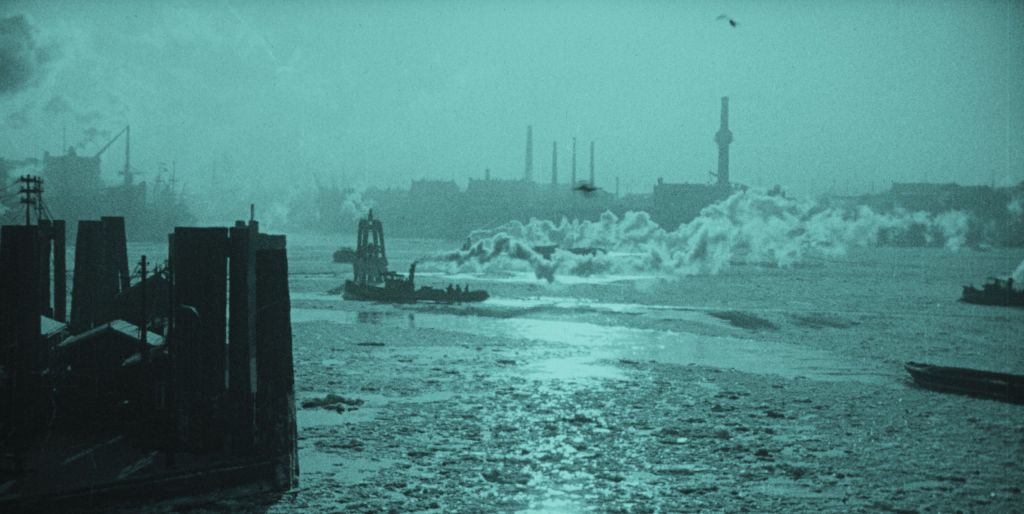Archival Spaces 339
Deutsche Kinemathek Update
Uploaded 26 January 2024

The news took a little longer to arrive than initially indicated in my Archival Spaces 319 blog (https://archivalspaces.com/2023/04/14/319-deutsche-kinemathek/)), but it is good, indeed. As reported in April 2023, the Deutsche Kinemathek and Museum für Film und Fernsehen on Berlin’s Potsdamer Platz had lost its lease and was seemingly going to become homeless since ground had yet to be broken next to Berlin’s Martin Gropius Building, the envisioned (and still planned) new permanent home of the German film archive. While the Arsenal Cinema and the German Film and TV Academy, the Kinemathek’s co-tenants in the building, had found new spaces, the Kinemathek as of April had not. Now, the Deutsche Kinemathek has sent out a press release, stating they will be moving to a new temporary facility in January 2025, after the Film Museum is shuttered at the end of October 2024.


For the foreseeable future, the Deutsche Kinemathek will move to the E-Werk building, located less than a mile from Potsdamer Platz, close to the former Checkpoint Charlie and the border between what was East and West Berlin for 45years after World War II. A former electric power substation, Abspannwerk Buchhändlerhof, originally built in 1885, the electrical works were subsequently enlarged and rebuilt over the years, the existing building designed by the architect Hans Heinrich Müller between 1925 and 1928 in a Neue Sachlichkeit aesthetic. In the 1980s, the electric substation was closed, only to reopen after German reunification in 1993 as a techno music night club, whose DJs made it world famous. The techno-club closed in 1997 and the building was renovated as a temporary event space in 2006.


When the Kinemathek moves in a year from now, it will have 4000 square meters (ca. 43,000 feet3) for office, archive, and exhibition space. The Kinemathek’s material culture archive, housing the collections of Marlene Dietrich, Paul Kohner, Werner Herzog, Ken Adam, and Gerhard Lamprecht, among countless others, will become available again to researchers after a brief period of closure for the transfer, as will the institution’s TV-Mediathek, which presently includes more than 12,000 broadcasts, spanning seven decades from broadcasters licensed the Federal Republic and the German Democratic Republic. The Kinemathek’s photo archives, including around 500,000 still and production photos, 100,000 personal photos, and 50,000 photos relevant to cinematic and festival history, will also be housed on-site.

While the Museum for Film and Television with its strikingly beautiful permanent exhibitions, will close its doors permanently in October, at least until the move to the Gropius site, – if you are in Berlin before then, it is well worth a visit -, the Kinemathek’s Ewerk site, with its vast main hall on the ground floor, and adjacent service counter hall, will present temporary “pop-up” exhibitions, as well as “experimental forms,” for traveling exhibitions and those developed with outside partners. Finally, the new space will include a small cinema, which will allow for film screenings for the first time in the Kinemathek’s own space (rather than at the Arsenal), although it is as yet unclear, whether the theatre will only be utilized for internal screenings and those of partners, or eventually include a public program.

This development is quite an accomplishment for Director Rainer Rother, who will retire in 2025 after the move to the new facility is completed, and who for more than a decade had sought a new space for the Deutsche Kinemathek, given budgetary restrictions placed on the institution by the Minister of Culture of the Federal Republic, which controls the purse strings.
It should also be noted that the Deutsche Kinemathek’s film archive and film restoration work has continued unabated during this period of instability. The film archive is housed on the outskirts of Berlin, as are its digital restoration facilities. Recent high-profile restorations have included Werner Schroeter’s Palermo oder Wolfsburg (1980), Werner Hochbaum’s Brüder (1929), G.W. Pabst’s The Mistress of Atlantis (1932), and Helke Sander’s Der subjektive Faktor (1981).
Finally, the Deutsche Kinemathek is continuing its longstanding cooperation with the Berlinale, International Film Festival, programming often ground-breaking retrospectives. This year’s retrospective begins in February, “An Alternate Cinema – From the Deutsche Kinemathek Archives,” and will feature “unconventional and idiosyncratic” film productions made in Germany between 1960 and 1980

Thanks for this update.
LikeLike
You are one oof my most faithful readers! Thank you.
LikeLike
Sounds great, Chris. Looking forward!
Ivo
LikeLike